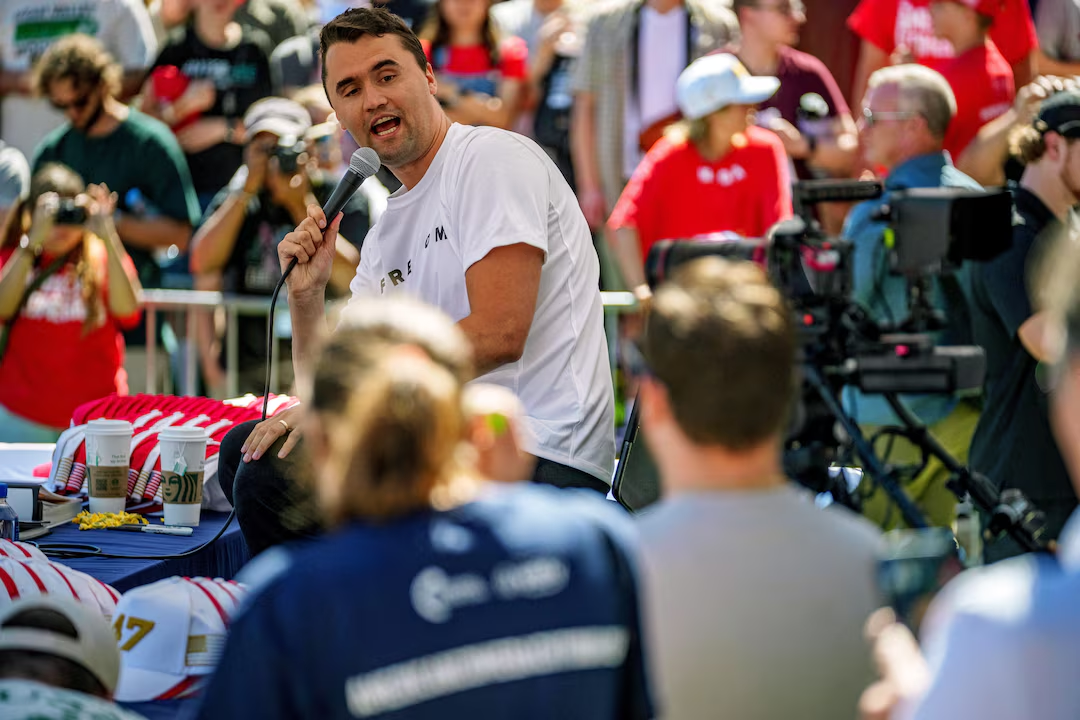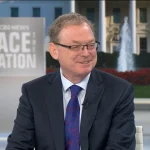The shocking news of right-wing commentator Charlie Kirk’s death after a campus shooting in Utah has sent ripples across the United States, igniting debates about free speech, campus safety, and the toxic polarization of modern politics. For many, Charlie Kirk was a highly influential conservative voice who resonated with younger audiences through Turning Point USA, the organization he founded. For others, his death marks not only the tragic loss of life but also the culmination of years of heated political rhetoric that has often made universities ground zero for ideological clashes.
- Who Was Charlie Kirk and Why He Mattered in American Politics
- The Utah Campus Shooting: What We Know So Far
- A History of Tension on College Campuses
- Reactions from Political Leaders and the Public
- Campus Security and the Debate Over Free Speech
- The Broader Impact on American Conservatism
- The Human Cost of Political Violence
- FAQs
- Who was Charlie Kirk?
- What happened in the Utah campus shooting?
- Why was Charlie Kirk a controversial figure?
- How has the political world reacted to his death?
- What does this mean for campus free speech debates?
- What is the future of Turning Point USA without Kirk?
- Conclusion
In the hours following the incident, students, faculty, and politicians began weighing in on what this moment means for American campuses, public safety, and political dialogue. The event raises painful questions about whether universities are equipped to handle the rising tensions between activism, free expression, and security, especially when high-profile figures are involved.
Who Was Charlie Kirk and Why He Mattered in American Politics
Charlie Kirk rose to prominence as the founder and president of Turning Point USA, a conservative nonprofit organization that became a major force on college campuses. Born in 1993 in Illinois, Kirk skipped traditional higher education to dive headfirst into political organizing. By the time he was in his twenties, he had already positioned himself as one of the most influential conservative youth leaders in America.
Through Turning Point USA, Kirk built a platform that emphasized free markets, limited government, and American exceptionalism. His presence was not confined to campuses—he frequently appeared on Fox News, hosted a popular podcast, and held direct lines to Republican leaders, including former President Donald Trump. His ability to connect with young conservatives made him both admired and criticized, and his events often drew protests from left-leaning student groups.
This visibility made Kirk a polarizing figure, but also one that commanded significant influence. His organization claimed thousands of student chapters nationwide, shaping a new generation of conservative activists. His death, therefore, is not just a personal tragedy but a political turning point, especially for those who saw him as a mentor or ideological guide.
The Utah Campus Shooting: What We Know So Far
The shooting that took Kirk’s life occurred during a campus event in Utah where he was scheduled to deliver a keynote speech. Early reports suggest that the gunfire erupted just minutes after the event began, sparking chaos among students and attendees. Witnesses described scenes of panic, with some diving under tables and others rushing for exits as campus security scrambled to control the situation.
Law enforcement officials confirmed that the suspect was apprehended shortly after the attack, though details about their motives remain unclear. Some reports suggest the shooter may have harbored strong political animosities, but investigators have cautioned against speculation until more evidence is gathered.
The University of Utah, where the event took place, immediately went into lockdown, and classes were canceled for the following day. The governor of Utah called the incident “a devastating reminder of the fragile balance between free expression and the safety of our communities.”
A History of Tension on College Campuses
Charlie Kirk’s presence on college campuses was never without controversy. His speaking events frequently attracted large protests, counter-protests, and heated debates about free speech. Students who disagreed with his views often accused him of spreading divisive rhetoric, while his supporters argued that universities should be bastions of open dialogue, even when ideas are unpopular.
The Utah shooting underscores the dangerous escalation of this tension. Statistics from the Anti-Defamation League reveal that political violence on campuses has increased significantly over the past decade, with dozens of recorded incidents tied to ideological clashes. Campus police departments nationwide report that high-profile political events now require substantial security budgets, stretching university resources thin.
In Kirk’s case, these tensions may have contributed to a volatile environment where ideological opposition boiled over into violence. While it is too soon to fully understand the shooter’s motivations, the tragedy underscores how fraught political discourse has become, especially in spaces where young people are shaping their worldviews.
Reactions from Political Leaders and the Public
The news of Kirk’s death prompted an immediate outpouring of grief from conservative figures. Former President Donald Trump called him “a patriot who loved America and dedicated his life to awakening young minds.” Fox News hosts remembered him as “a tireless fighter for freedom,” while fellow Turning Point leaders pledged to continue his mission.
On the other side, reactions were more complicated. Some progressive commentators expressed condolences but also noted that Kirk’s rhetoric had long been a source of division. Social media platforms saw an avalanche of posts, some expressing genuine sorrow while others reignited debates about the role of inflammatory political speech in shaping American society.
Political analysts warn that this tragedy could further entrench polarization rather than heal it. “We’re at a crossroads,” one professor of political science remarked. “The question is whether this moment leads to reflection and dialogue, or whether it becomes another weapon in the culture war.”
Campus Security and the Debate Over Free Speech
The Utah tragedy has reignited the debate about campus security, particularly when controversial speakers are involved. Universities across the country are already grappling with how to balance safety with the constitutional right to free speech. Some institutions have canceled events in the past due to security concerns, drawing criticism from conservatives who argue that this amounts to censorship.
According to the National Center for Education Statistics, more than 20 percent of universities reported significant disruptions tied to political events in the past five years. Security costs for high-profile speakers can range from $50,000 to $100,000 per event, placing immense strain on budgets that are often already stretched thin.
Charlie Kirk’s death now forces a national conversation about whether universities can continue hosting such events safely—or whether the risks have become too great. Advocates of free expression caution against overreacting. “If we allow violence to dictate who gets to speak, we surrender the core principles of democracy,” one civil liberties lawyer noted.
The Broader Impact on American Conservatism
Charlie Kirk’s death leaves a significant void in conservative activism. As one of the most prominent figures appealing directly to younger voters, his absence could shift the trajectory of youth engagement within the movement. Turning Point USA will almost certainly continue, but without Kirk’s charismatic leadership, its future direction remains uncertain.
For conservatives, this loss may galvanize renewed efforts to protect free speech and push back against what they perceive as hostile academic environments. For liberals, it raises difficult questions about how to address polarizing figures while maintaining campus inclusivity and safety. Either way, the incident has thrust the issue of campus politics into the national spotlight, ensuring that Kirk’s influence will resonate long after his death.
The Human Cost of Political Violence
Beyond the politics, it is essential to remember that Charlie Kirk’s death represents a profound human loss. He was a son, a friend, and a mentor to countless young people who looked up to him. His family issued a statement asking for privacy while emphasizing Kirk’s lifelong belief in “the power of ideas to shape the world.”
Political violence carries devastating costs that ripple through families, communities, and institutions. Experts warn that each high-profile incident risks normalizing violence as a political tool, further undermining democratic dialogue. The tragedy in Utah should therefore serve not only as a moment of mourning but also as a call to action against the escalating hostility that threatens to engulf American society.
FAQs
Who was Charlie Kirk?
Charlie Kirk was a right-wing political commentator and activist best known as the founder of Turning Point USA, a conservative organization with a strong presence on college campuses. He became a national figure through his media appearances, podcast, and close ties to Republican leaders.
What happened in the Utah campus shooting?
The shooting occurred during an event at the University of Utah where Kirk was scheduled to speak. Gunfire broke out shortly after the event began, leading to chaos on campus. Kirk was fatally wounded, and the suspect was later apprehended by authorities.
Why was Charlie Kirk a controversial figure?
Kirk’s advocacy for conservative policies, particularly on issues like immigration, race, and gender, often sparked protests on college campuses. Supporters praised him for championing free speech, while critics accused him of spreading divisive and inflammatory rhetoric.
How has the political world reacted to his death?
Conservative leaders, including Donald Trump, mourned Kirk as a patriot and visionary, while reactions on the left were more complex, balancing condolences with criticism of his role in fueling polarization.
What does this mean for campus free speech debates?
The incident is likely to intensify debates about whether universities can continue to host controversial speakers safely. Advocates of free speech warn against canceling events, while others argue that the risks to safety may outweigh the benefits.
What is the future of Turning Point USA without Kirk?
Turning Point USA will likely continue its mission, but Kirk’s absence raises questions about leadership and direction. His unique ability to mobilize young conservatives will be difficult to replicate, making this a pivotal moment for the organization.
Conclusion
The death of Charlie Kirk in a Utah campus shooting is a tragedy that reverberates far beyond the conservative movement. It highlights the dangerous escalation of political tensions on American campuses, the challenges of protecting free speech while ensuring safety, and the profound human costs of violence.
Whether one agreed or disagreed with Kirk’s politics, his death is a reminder that democracy requires dialogue, not destruction. The path forward will demand courage, empathy, and a recommitment to the principles that make open debate possible.






